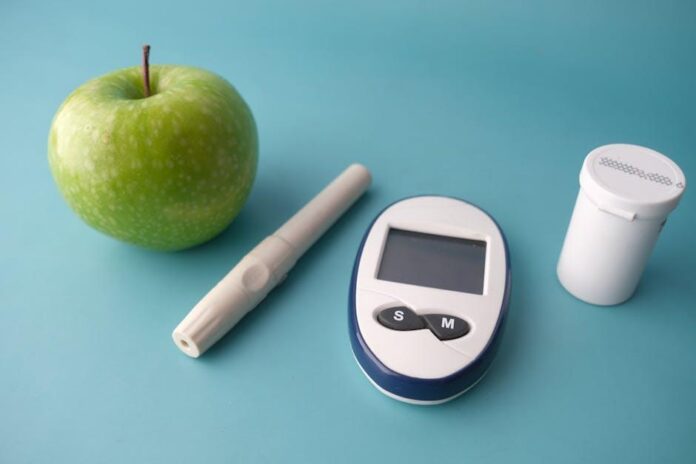
High blood sugar, also known as hyperglycemia, is a common issue for many people, especially those with diabetes. When blood sugar levels are too high, it can lead to a variety of health problems, including fatigue, frequent urination, increased thirst, blurred vision, and even more serious complications like heart disease and stroke. Managing high blood sugar is crucial for maintaining good health and preventing these potential issues.
If you’re struggling to bring your blood sugar levels down safely, don’t worry – there are plenty of strategies you can use to get back on track. In this article, we’ll cover some tips and techniques for managing high blood sugar levels effectively.
1. Monitor your blood sugar levels regularly
The first step in managing high blood sugar is to monitor your levels regularly. This means checking your blood sugar with a glucometer throughout the day, especially before and after meals. Keeping track of your levels can help you understand how different foods, activities, and medications affect your blood sugar, allowing you to make informed decisions about your health.
2. Eat a balanced diet
One of the most important ways to manage high blood sugar is to maintain a healthy diet. Eating a balanced diet that includes plenty of fruits, vegetables, whole grains, and lean proteins can help keep your blood sugar levels in check. Avoid sugary foods and drinks, as well as refined carbohydrates like white bread and pasta, which can cause spikes in blood sugar.
3. Stay hydrated
Drinking plenty of water throughout the day is crucial for managing high blood sugar. Dehydration can cause blood sugar levels to rise, so it’s important to stay hydrated to help your body process glucose effectively.
4. Exercise regularly
Physical activity is another key component of managing high blood sugar levels. Exercise helps your body use insulin more effectively, which can lower blood sugar levels. Aim for at least 30 minutes of moderate exercise most days of the week, such as walking, cycling, or swimming.
5. Take medication as prescribed
If you have diabetes, it’s important to take your medication as prescribed by your doctor. This may include insulin injections, oral medications, or both. Make sure to follow your doctor’s instructions carefully and report any changes in your blood sugar levels or symptoms.
6. Get plenty of sleep
Sleep plays a significant role in managing blood sugar levels. Lack of sleep can lead to hormonal imbalances that affect insulin sensitivity, causing blood sugar levels to rise. Aim for 7-9 hours of quality sleep each night to help keep your blood sugar in check.
7. Manage stress
Stress can also impact blood sugar levels, so it’s important to find ways to manage stress effectively. Techniques like deep breathing, meditation, yoga, and spending time in nature can help reduce stress and keep your blood sugar levels stable.
8. Limit alcohol consumption
Alcohol can affect blood sugar levels, especially if consumed in large quantities. Limit your alcohol intake and avoid sugary cocktails and drinks that can cause spikes in blood sugar.
9. Work with a healthcare provider
If you’re struggling to manage high blood sugar levels, it’s important to work with a healthcare provider who can help you develop a personalized plan for managing your condition. They can provide guidance on diet, exercise, medication, and other strategies for keeping your blood sugar levels in a healthy range.
10. Stay informed
Finally, staying informed about your condition is crucial for managing high blood sugar levels effectively. Keep up to date with the latest research and guidelines for managing diabetes and blood sugar, and don’t hesitate to ask questions to your healthcare provider if you have any concerns.
In conclusion, managing high blood sugar levels is crucial for maintaining good health and preventing complications associated with diabetes. By following these tips and techniques, you can effectively bring your blood sugar levels down safely and improve your overall well-being. Remember to monitor your levels regularly, eat a balanced diet, exercise regularly, take medication as prescribed, stay hydrated, get plenty of sleep, manage stress, limit alcohol consumption, work with a healthcare provider, and stay informed about your condition. With the right strategies in place, you can take control of your blood sugar levels and lead a healthy, happy life.












